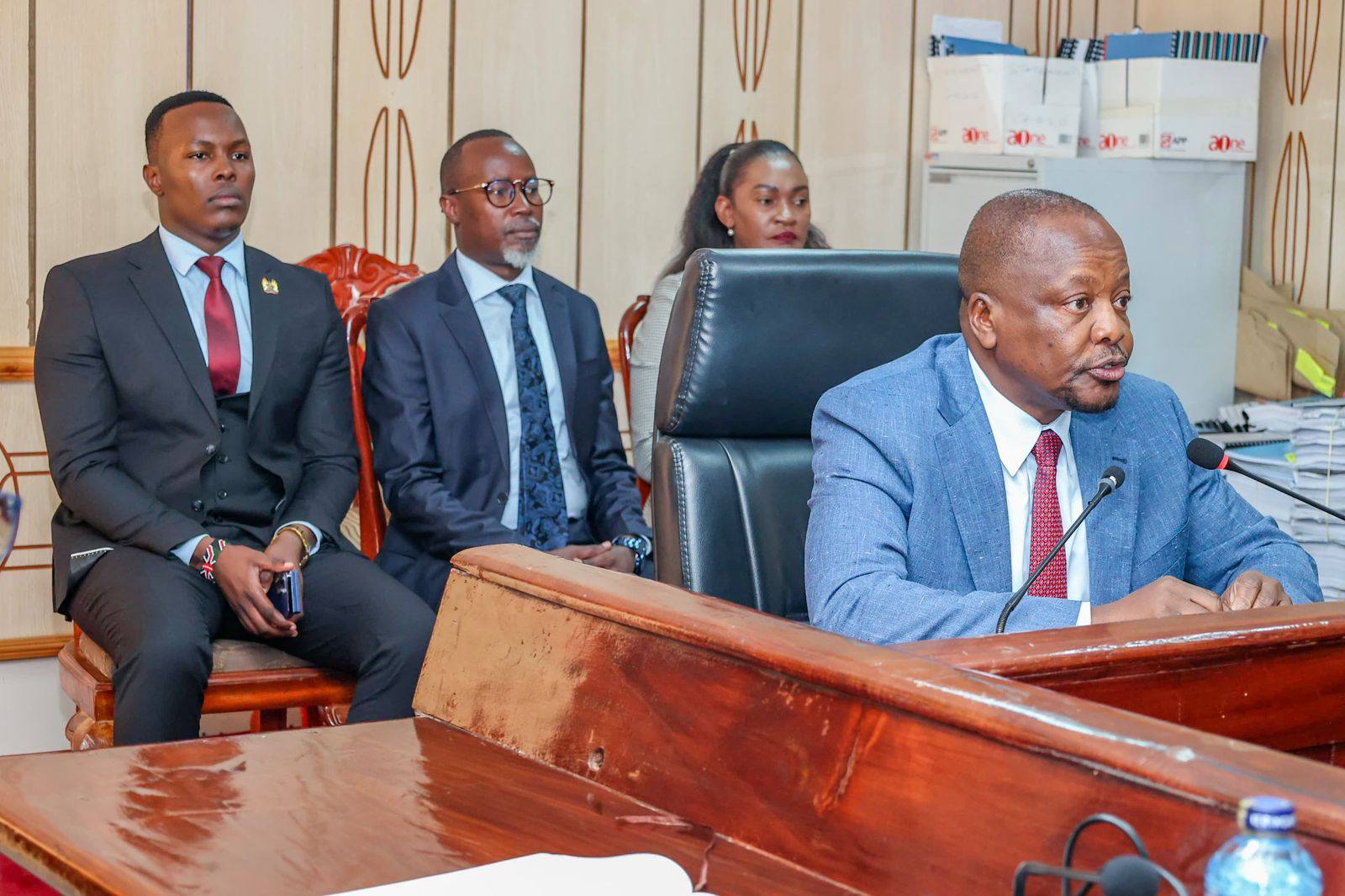CS Kagwe calls for removal of value-added tax on key farm inputs to boost sector competitiveness

Kagwe specifically proposed that VAT on agricultural machinery and packaging materials used in agro-processing be zero-rated to promote value addition.
Agriculture Cabinet Secretary Mutahi Kagwe has called for the removal of value-added tax (VAT) on agricultural inputs and the processing of commodities, urging Parliament to take action to increase the competitiveness of Kenya’s agricultural products.
Speaking on Tuesday before the National Assembly Committee on Agriculture, Kagwe emphasised that revising and harmonising the country’s tax regime for agricultural-related inputs, including import duties and VAT on agro-processing materials, would significantly enhance the sector's competitiveness.
More To Read
- CS Kagwe announces policy overhaul for sugar, tea and miraa to protect farmers’ earnings
- Factory farming in Africa: Development banks see it as a good idea, but it’s bad for the climate
- AU calls for rapid tech adoption in farming to shield continent from food crises
- CS Kagwe urges bold reforms in agriculture sector as Intergovernmental Agriculture Forum opens in Naivasha
- Kenya wants China to remove tariffs on coffee, tea, avocados as trade imbalance persists
- City Hall moves to recognise urban farmers in policy review
Kagwe specifically proposed that VAT on agricultural machinery and packaging materials used in agro-processing be zero-rated to promote value addition.
He also advocated for reverting agricultural pesticides and fertilisers to zero-rating, rather than leaving them tax-exempt, and for placing agricultural seeds, currently taxed at 16 per cent, under the zero-rating category.
“All agricultural pesticides and fertilisers should be reverted to zero rating as opposed to tax exempt, and all direct agricultural inputs like seed that are under the standard tax rate of 16 per cent should also be put under zero rating,” Kagwe said.
In his presentation, Kagwe also touched on the marketing of export crops, particularly tea, and proposed that tea be reclassified as a food item and zero-rated on VAT to boost local consumption and encourage value addition.
He recommended merging the buyers and packers registration categories under tea industry regulations and increasing import duties on packed tea imports from 25 per cent to 50 per cent, or alternatively, imposing an import levy.
Additionally, Kagwe suggested exempting tea imports for re-exports from the Kenya Bureau of Standards (KEBS) annual certificate of product conformity requirements.
Addressing the budgetary concerns of his ministry, Kagwe pointed out that the Ministry of Agriculture's total budget allocation stands at Sh58 billion, which includes Sh22.3 billion for recurrent expenditure and Sh35.85 billion for development.
However, he noted that there is a shortfall in the required funding, with the livestock development department needing Sh6.7 billion but only receiving Sh5 billion, and the agriculture department requiring Sh20.7 billion while receiving only Sh17.3 billion.
The CS further highlighted that the development budget for both sectors falls short by over Sh37 billion.
Kagwe also presented key priorities for the Ministry of Agriculture, including improving sector efficiency through technology, enhancing post-harvest initiatives, and expanding access roads to reduce losses.
He stressed the need for additional funding of Sh2 billion to enhance strategic food reserves, and highlighted plans for revitalising the tea sector, boosting agricultural mechanisation, and improving the sugarcane industry.
In livestock, Kagwe emphasised the Ministry’s focus on implementing the Animal Traceability System (ANITRAC), collecting livestock data to inform investment decisions, and incentivising private sector involvement in the leather industry.
The Ministry also plans to prioritise the completion of various policy reforms, including the enactment of the Livestock Bill and other related legislations.
Top Stories Today













































